This page is now closed.published at 05:38 GMT 30 October 2023
For the latest updates, go to bbc.com/africalive
For the latest updates, go to bbc.com/africalive
BBC Africa Eye investigates an increase in severe and sometimes deadly beatings at Kenyan schools.
Read MorePresident William Ruto decries travel restrictions on the continent saying they inhibit commerce.
Read MoreEdgar Lungu is aiming to capitalise on growing discontent with his successor, Hakainde Hichilema.
Read MoreAs South Africa faces economic troubles the Rugby World Cup success is a welcome distraction.
Read MoreDescendants of 19 men hanged 123 years ago have spent decades searching for their remains.
Read MoreAt least 32 people have been killed and dozens more injured in a crash, local authorities report.
Read MoreFormer emperor of Ethiopia Haile Selassie's connection with Bath is being celebrated in a festival.
Read MoreMultiple vehicles collided on a road north of Cairo, with several cars catching fire, state media say.
Read MoreThe Ghanaian says he's "graduated" from the Jamaican genre that earned him legions of fans.
Read MoreAfter 11 months in action, the force set up to curb violence has been told to withdraw.
Read MoreParliament passes the biggest education reform since the end of apartheid in 1994.
Read MoreSome people are unhappy there is no plan to have a memorial to the Ugandan guide killed in the attack.
Read MoreThis is the worst power cut for two years, coming amid a serious economic crises in the country.
Read MoreSouth Africa winger Makazole Mapimpi will miss the Rugby World Cup final after picking up an injury in the pool stage.
Read MoreThe paramilitary RSF seizes key trade hub Nyala from the army, despite the start of peace talks.
Read MoreThat's all for now from the BBC Africa Live team for now.
There will be an automated feed on this page on Friday and over the weekend.
You can find the latest updates on the BBC News website or listen to the Focus on Africa podcast.
A reminder of Thursday's wise words:
Quote MessageLions that do not work together can be defeated by a limping buffalo."
A Sepedi proverb sent by Victor Rasha in Pretoria, South Africa
Click here to send us your African proverbs.
And we leave you with some pictures from Ethiopia's capital, Addis Ababa, during National Defence Forces day - this was where Prime Minister Abiy Ahmed said his country had no intention of invading another country to gain access to the sea for the landlocked country:
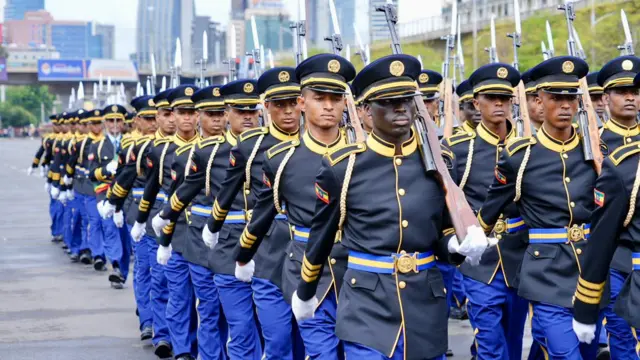 Image source, Amensisa Negera/BBC
Image source, Amensisa Negera/BBC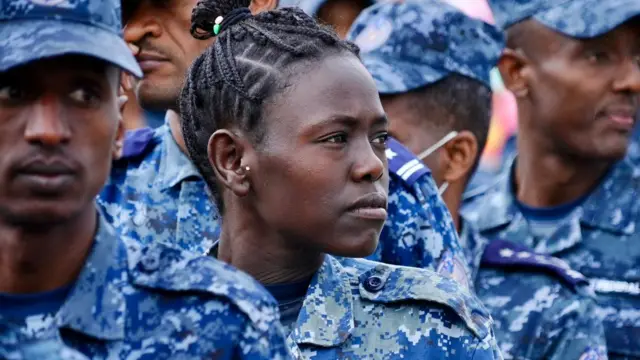 Image source, Amensisa Negera/BBC
Image source, Amensisa Negera/BBC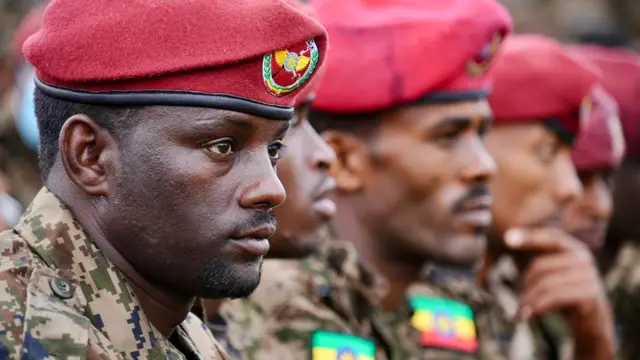 Image source, Amensisa Negera/BBC
Image source, Amensisa Negera/BBC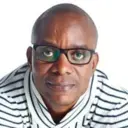 Kennedy Gondwe
Kennedy Gondwe
BBC News, Lusaka
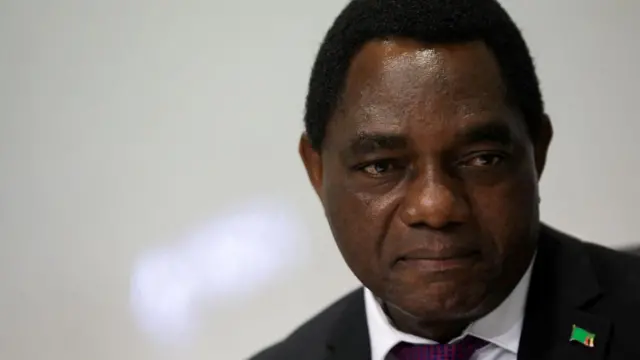 Image source, Reuters
Image source, ReutersZambian President Hakainde Hichilema has previously said he respects human rights and allows the police to do its work
Thirteen civil society organisations in Zambia have expressed concern at what they describe as the "shrinking space for freedom of expression and assembly in the country".
In a joint statement, the organisations say there is a “growing intolerance for dissent”.
The statement cites a number of violations, including the forcible arrest on Wednesday of vocal opposition figure Sean Tembo, who had his house broken into by police officers.
The statement says despite President Hakainde Hichilema repeatedly expressing commitment to safeguarding human rights and the rule of law, they are taken aback by some actions coming from his appointees.
“Recently, we have observed worrying trends with the failure by public authorities to protect the rights to freedom of expression and freedom of assembly, which are the bedrock of our democracy,” the 13 organisations say.
The statement adds that in June this year, the state-owned Zambia Daily Mail fired a photojournalist for photographing people queuing up for maize meal, which is used to prepare the country’s staple food, nshima.
The statement also lists the cautioning of a privately owned radio station after it hosted Dr Sishuwa Sishuwa, a critical Zambian academic.
“These incidents show a growing intolerance for dissent and have the potential to plunge the country into the abyss of demagoguery and political repression by the government,” the statement adds.
The government has not responded but has previously said the president respects human rights and does not interfere in the operations of the police.
Among the organisations that signed the statement were Transparency International Zambia, Action Aid and the Panos Institute Southern Africa.
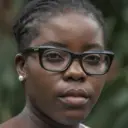 Nomsa Maseko
Nomsa Maseko
BBC News, Johannesburg
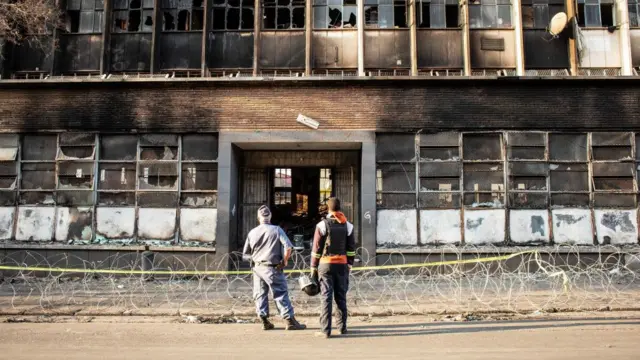 Image source, EPA
Image source, EPAThe fatal fire shocked South Africans and exposed conditions in hijacked buildings
The judicial commission of inquiry in South Africa into the circumstances surrounding the deaths of 77 people in a Johannesburg fire in August has opened.
The commission, led by a retired judge, Sisi Khampepe, has been given six months to complete its work.
Three witnesses have already testified so far.
The fatal blaze shocked the nation and South Africans are anxiously waiting to find out who should be held accountable for the tragic fire.
Most of the victims were burned beyond recognition and surviving family members are expected to testify about the traumatic night.
President Cyril Ramaphosa visited the scene shortly after the inferno and expressed shock for the enormous loss of life.
“We’re very saddened as the government about the passing of so many people here in Johannesburg... this is unprecedented,” the president said.
Mr Ramaphosa also said it was important to investigate the circumstances.
“We have to get to the bottom of what caused this fire... it’s a wake up call for us to begin to address the situation of housing in the inner city.”
The first part of the inquiry will focus on the circumstances which led to the fire while the second part will investigate why many buildings in the inner city have been taken over - or hijacked - by criminal syndicates.
In this case, illegal landlords were renting out the property to more than 200 people.
Some residents who live in buildings taken over by syndicates have told the BBC that they pay affordable rates to people who collect the rent on behalf of the landlords.
“Rent is cheaper here compared to other areas, I have rented two properties for my family and I run a business in the other one,” said a Zimbabwean woman who runs a tailoring business in the area and asked not to be named.
The government has a record of not acting on recommendations made by independent commissions of inquiry but many are hoping that the findings of this commission can lead to accountability and even prosecution.
Read more about the fire:
Newsday
BBC World Service
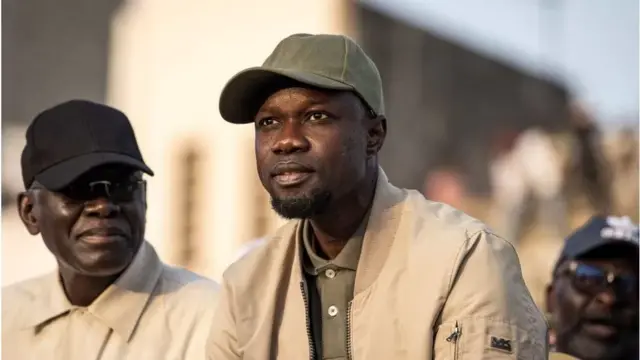 Image source, AFP
Image source, AFPOusmane Sonko, seen here in March, is very popular among the Senegalese youth who want more economic opportunities
Ousmane Sonko, a detained Senegalese opposition figure who has been on hunger strike, has regained consciousness after falling into a coma on Monday, according to one of his lawyers.
But he remains "very weak" and in a critical state, Juan Bronco told the BBC's Newsday programme.
Sonko has faced a series of legal battles over the past two years.
In June, he went on trial for rape, but after being acquitted on that charge he was sentenced to two years in prison for "corrupting youth". The court found that he had acted immorally towards an individual younger than 21, after allegations made by a massage therapist.
In July, he was arrested and imprisoned on a string of charges, including fomenting insurrection. Furthermore, his party, the Patriots of Senegal, was dissolved.
Sonko has said the charges against him and his supporters are politically motivated to prevent him from standing in next year's presidential election, which the authorities have denied.
Mr Bronco said his client had undertaken two hunger strikes to demand his release but that these had “weakened him” and that he will remain in hospital.
“It’s very uncertain that he will maintain his consciousness,” Mr Bronco said earlier this week.
Read more on Ousmane Sonko: